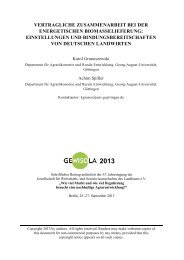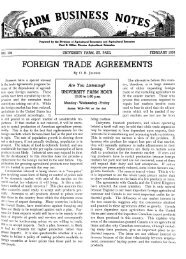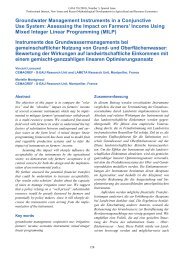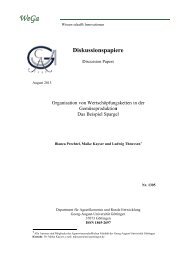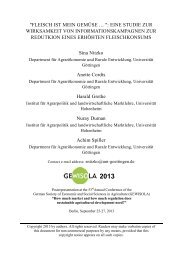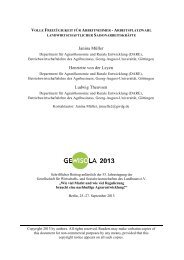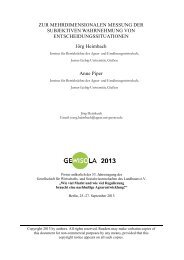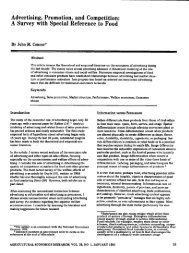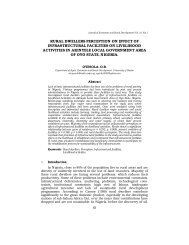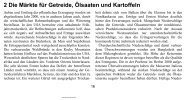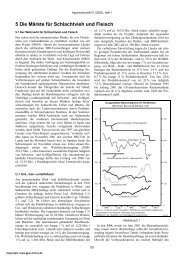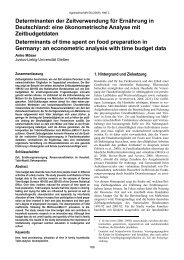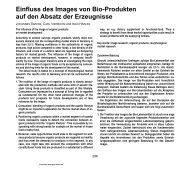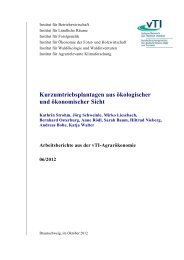District Institutes of Education and Training - Teacher Education
District Institutes of Education and Training - Teacher Education
District Institutes of Education and Training - Teacher Education
You also want an ePaper? Increase the reach of your titles
YUMPU automatically turns print PDFs into web optimized ePapers that Google loves.
<strong>District</strong> <strong>Institutes</strong> <strong>of</strong> <strong>Education</strong> <strong>and</strong> <strong>Training</strong>: A Comparative Study in Three Indian States<br />
S1 Explanation<br />
S2 Question answer<br />
S4 The first thing is the book, which is used everywhere <strong>and</strong> the second thing<br />
is question answers.<br />
N These two things…..<br />
S5 No, we would use examples too, when we go to school, we have had the<br />
example method explained …<br />
S6 Madam I tell you, here micro teaching is going on…. here we have to do<br />
all these things under pressure. That’s why we do all these things, this is the<br />
skill so let’s take this thing or this is the skill, let’s take that one…. otherwise<br />
when we go for lessons nothing will remain except explanation<br />
(RAJ/MAS/1st yr sts 27.7.00).<br />
This sense that they will be like their own teachers is strengthened by their<br />
assumption that when they go to work in a school, they will be forced to work as<br />
others work:<br />
In schools, the old teachers <strong>and</strong> atmosphere <strong>of</strong> the old system remain. If one<br />
STC trained person goes there he would not be able to change anything. It is<br />
only possible if all the old teachers are transferred <strong>and</strong> only fresh STC trained<br />
teachers are appointed in a school. With the old teachers, suppose I go <strong>and</strong> try<br />
to change <strong>and</strong> teach in this manner they will oppose me <strong>and</strong> I will not be able<br />
to change anything (RAJ/UDR 1st yr.st).<br />
4.2.4 Teaching practice<br />
Teaching practice has similar components in all three States. Before any teaching<br />
practice takes place, lecturers demonstrate a lesson in each subject, to illustrate the<br />
whole process <strong>and</strong> the steps <strong>of</strong> a lesson plan, which they develop on the blackboard<br />
in front <strong>of</strong> the students. This lesson plan includes lesson objectives <strong>and</strong> expected<br />
behavioural change, introduction, statement <strong>of</strong> the objective <strong>of</strong> the lesson, the<br />
teaching process which includes teacher’s response as well as the expected students’<br />
response, use <strong>of</strong> TLA, evaluatory questions <strong>and</strong> homework. A student is supposed<br />
to adhere to all the steps <strong>of</strong> the lesson plan <strong>and</strong> is not encouraged to diversify or<br />
innovate, which underlines the lack <strong>of</strong> practical usefulness <strong>of</strong> the training:<br />
We do 40 lesson plans. This kind <strong>of</strong> lesson plan cannot solve the purpose. We<br />
are given competencies by our lecturer. When we are in class, we know that<br />
children do not have the previous competencies. We cannot do anything even<br />
if we know the correct situation. We have to teach according to the lesson plan<br />
(MP/I 2nd yr st 26.12.99).<br />
Each student has to give lessons, <strong>and</strong> observe <strong>and</strong> critique lessons given by other<br />
students. In this system, the focus <strong>of</strong> teaching practice is delivering a carefully<br />
DFID 83



